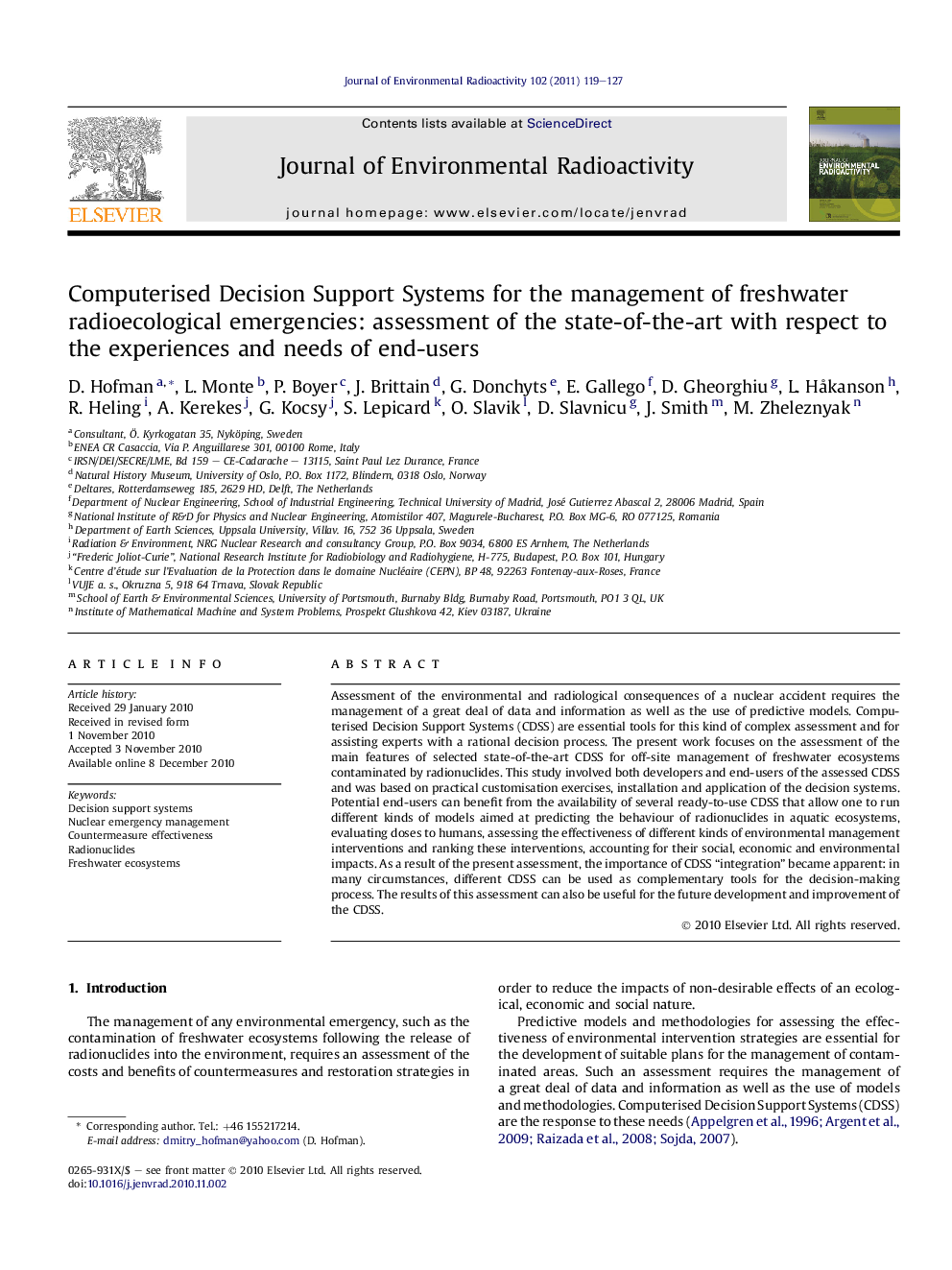| Article ID | Journal | Published Year | Pages | File Type |
|---|---|---|---|---|
| 1738565 | Journal of Environmental Radioactivity | 2011 | 9 Pages |
Assessment of the environmental and radiological consequences of a nuclear accident requires the management of a great deal of data and information as well as the use of predictive models. Computerised Decision Support Systems (CDSS) are essential tools for this kind of complex assessment and for assisting experts with a rational decision process. The present work focuses on the assessment of the main features of selected state-of-the-art CDSS for off-site management of freshwater ecosystems contaminated by radionuclides. This study involved both developers and end-users of the assessed CDSS and was based on practical customisation exercises, installation and application of the decision systems. Potential end-users can benefit from the availability of several ready-to-use CDSS that allow one to run different kinds of models aimed at predicting the behaviour of radionuclides in aquatic ecosystems, evaluating doses to humans, assessing the effectiveness of different kinds of environmental management interventions and ranking these interventions, accounting for their social, economic and environmental impacts. As a result of the present assessment, the importance of CDSS “integration” became apparent: in many circumstances, different CDSS can be used as complementary tools for the decision-making process. The results of this assessment can also be useful for the future development and improvement of the CDSS.
Research highlights►The present work focuses on the assessment of the main features of selected state-of-the-art CDSS for the off-site management of freshwater ecosystems contaminated by radionuclides. ►Potential end-users can benefit from a number of complementary open, freely-available and ready-to-use CDSS based on validated environmental models aimed at predicting the migration of radionuclides in the aquatic environment, evaluating the doses to man, assessing the effectiveness of different environmental feasible restoration strategies and environmental management interventions according to their social, economic and environmental impacts. ►Some issues such as integration of different CDSS through data exchange procedures and experimental data assimilation are of particular importance for further developments and improvements.
